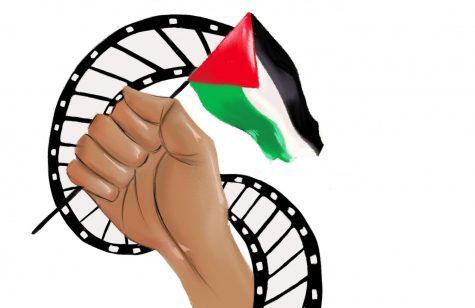Palestinian culture shared during annual film festival
April 12, 2019

The 51-day war between Gaza and Israel in 2014 left some Palestinians homeless. This is explored in the documentary “Killing Gaza,” playing at this year’s Palestine Film Festival.
The festival will take place at the Gene Siskel Film Center of the School of the Art Institute of Chicago, 164 N. State St., and will run April 20 through May 2. It will feature a variety of films directed and produced by people from all over the world showcasing Palestinian culture.
Festival Executive Director Khaled Elkhatib said there are nine showings this year, and the opening film “Screwdriver” will have a second showing April 25.
“It’s about Palestine and the Palestinian experience and culture,” he said. “Sometimes it’s a very simple thing we take for granted.”
The festival is the longest-running Palestinian film festival in the world, according to the festival website. It is descibed as “a non-political, nonprofit organization sharing the stories of Palestine [through] a social justice organization that works tirelessly to improve the lives of Palestinian people both here and abroad.”
This year, the festival held a competition asking amateur filmmakers to create a short film—less than five minutes long—via a smartphone. Elkhatib said the contestants need to have no training or experience in filmmaking, and they cannot enter if they have made a film prior. They are offering a $500 prize for the winner.
Junior communication major Hinda Akel has never been to the festival but is looking forward to seeing “The Man Who Stole Banksy,” a documentary about street artist Banksy.
“I always love looking at his work, so it’d be really interesting to see that put into a film,” Akel said. “He incorporates a lot of Palestinian rights and the Palestinian and Israeli conflict, and he puts it into a peaceful form of art for people to understand.”
The Gene Siskel Film Center has been hosting the festival for more than 10 years. Director of Programming Barbara Scharres said the festival does not discriminate across the board and includes films by Israeli filmmakers as well as other countries in the Middle East.
“There’s quite a body of work by Palestinian directors,” she said. “The festival tries to encompass that kind of work on a very selective basis, and we feel that it’s important to be seen.”







